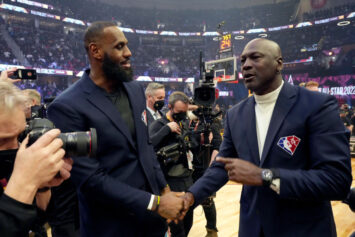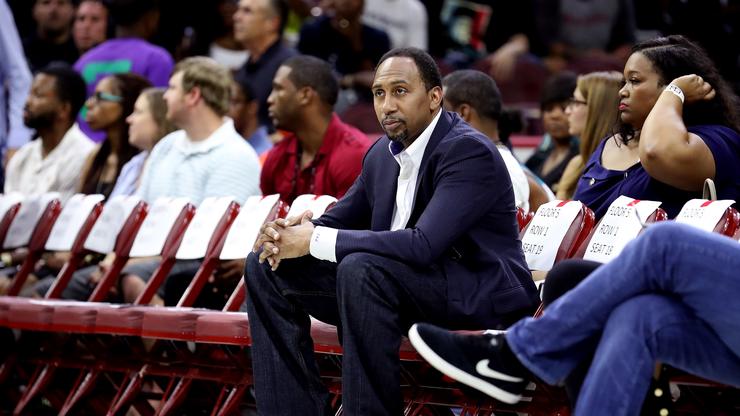When people look at me, they may or may not see someone who is Hispanic. At various times in my life, I’ve been called Mexican, Puerto Rican, Indian (Native American is the proper term these days) and Spanish. People look at my hair, eyes and skin color and make a determination off of that. I’m a light-skinned Hispanic. None of those are my nationality. I’m American…of Hispanic descent. Merriam-Webster defines nationality as: the status of belonging to a particular nation.
When it comes to sports, I sometimes straddle the two worlds. Come Olympics time, I proudly cheer on the red-white-and-blue.When the World Cup rolls around, it’s USA, Mexico, Argentina and most of the other Latin or South American countries.
Why? Point of pride.
@tigers batting five straight Cubans in their lineup tonight: JD Martinez, Yoenis Cespedes, Nick Castellanos, Alex Avila and Jose Iglesias.
Pedro Gomez (@pedrogomezESPN) April 22, 2015
Cubans are not a race and no statement made. We are an ethnicity. Just a point of pride. https://t.co/IPiMgtC22G
Pedro Gomez (@pedrogomezESPN) April 22, 2015
As Gomez stated above, Cubans are not a race. Replace the word Cubans with Mexicans, Puerto Ricans, Venezuelans, Australians, English, South African, Germans, Canadian insert your chosen country name. None of those are a race. They are a nationality.
Somewhere along the line, nationality became a secondary identifier. Race and/or ethnicity take center stage in daily conversations and news items, especially since its easier to label based on race rather than nationality. Would you call me American or simply assume I’m Mexican? How would people label me?
That’s not as easy to answer as you think.
As I stated in my last feature for The Shadow League, Labels allow for a neat and tidy categorization of a group. They help shape our identity in the eyes of others, whether we like it or not. I’m not a fan of labels, but I understand their place in society.
The problem comes when people confuse race with ethnicity or nationality. This issue arose last week when comedian Chris Rock created a 7 minute piece for HBO on the subject of African Americans and baseball.
Gonna keep tweeting this Chris Rock monologue on MLB’s race problem until you all watch it: http://t.co/nLIlUhaVxL
Molly Knight (@molly_knight) April 22, 2015
Once more: If you enjoy Chris Rock, his take on MLB’s diversity issue is a must-watch. http://t.co/w8mJYKuMsupic.twitter.com/5yuycGqr48
Jimmy Traina (@JimmyTraina) April 22, 2015
As I listened to him talk, I didn’t find that he was lamenting the lack of African-American players in baseball as much as I heard a baseball fan talking about how the game hasn’t changed. Because it hasn’t changed, fewer people are becoming fans of the game. Rock harkened back to when he was growing up and how he became a baseball fan. Today, Rock said he didn’t see many African-American fans at games.
Google median age of baseball fans and you will find an abundance of articles about how baseball skews older. As baseball skews older, the NFL skews younger. Unwritten rules, lack of showmanship, the length of games all contribute to baseball’s image problem.
Diversity? No, that’s not part of baseball’s problem.
In the old days, players would have been defined by their skin color. Whites, blacks, browns, yellows have been replaced by Caucasian, African-American, Hispanic, Asian. MLB rosters are dotted with Americans, Mexicans, Canadians, Puerto Ricans, Dominicans, Venezuelans, Japanese, Korean, Australians and more. English, Spanish, Japanese, Korean languages all permeate clubhouses across the league.
I’m not sure how others define diversity, but based on that list, MLB seems to be more diverse than most of the other major sports in the United States. You’d be hard pressed to find many Hispanics (Latinos) in the NHL or NFL. The NBA boasts a few more, but even then, it’s a sport that is dominated by Americans (African-Americans).
Talk about a lack of diversity.
The NFL and NBA, with their lack of diversity compared to MLB, are at the top of the heap in terms of popularity here in America. Bigger, faster, stronger athletes. Exciting in-game action that transfers well to television and social media. More engaging in-venue entertainment as well. All contribute to their popularity.
How does baseball stack up?
Bigger, faster, stronger athletes? Check.
Engaging in-venue entertainment? Check. There are no jokes about the No Fun League here. They have swimming pools in the home runs areas!
Exciting in-game action? Transfers well to television? Che….well, not necessarily. Commercials every half-inning and during pitching changes. Two or three announcers sometimes discussing non-baseball related topics in blow-out games. Take an hour nap in the second inning and the game might still be going on.
In a society whose attention span is growing increasingly shorter and shifting to the smaller screen, MLB’s traditional old-school ways are in need of adjustment. MLB needs to attract a younger audience like the NFL and NBA have. Parents aren’t creating the next generation of MLB fans because the league hasn’t given them enough reason to do so. They need to give parents a reason to say yes when their kids ask to go to a game or express a desire to play the game.
I listened to what Chris Rock said and I’ve listened to others on the subject of baseball and diversity.
Are there fewer African-Americans playing baseball today? Yes. There are reasons, some of which the Pittsburgh Pirates’ Andrew McCutchen eloquently described in this February 2015 piece for The Players’ Tribune. But just because there are fewer African-Americans in MLB doesn’t mean there’s a lack of diversity.
But that’s not solely MLB’s problem. That’s the sport’s problem a problem of the youth baseball organizations in this country. Making it affordable, available and appealing to all is the sport’s challenge, not strictly MLB’s.
Can MLB help? Sure. Help, but not single handedly solve.
Now is a prime opportunity for MLB. At a time when the NFL is showing kinks in their armor, now is when MLB should ramp up their efforts to attract new fans and get kids to play the game. Give them a reason to choose baseball over football or basketball. Give parents a reason to get their kids into baseball either as a player or fan. MLB salaries continue to escalate, yet the game still pales in popularity compared to the NFL and the NBA, so money is not the primary method of attraction.
My mom was a sports fan. She signed me up to play softball as a kid. I played it all the way through high school. She liked watching sports, so I watched too. Football, basketball and yes, even baseball I watched them all. She passed that passion and love of sports on to me. She gave me a reason to play, attend games and watch sports.
MLB needs to give the next generation a reason to become fans, but baseball as a sport needs to give kids a reason to play the game.
I’m sure Chris Rock would agree.
Photo credit: Sports Illustrated





